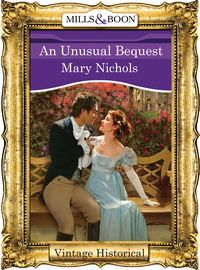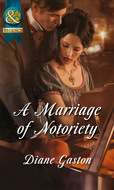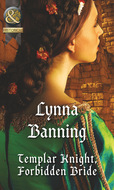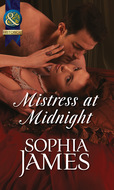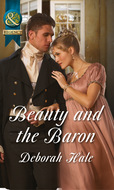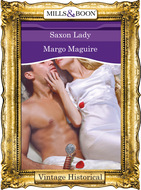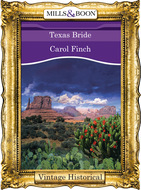Kitap dosya olarak indirilemez ancak uygulamamız üzerinden veya online olarak web sitemizden okunabilir.
Kitabı oku: «An Unusual Bequest», sayfa 4
Chapter Three
Stacey wandered over to where she stood and swept off his hat. ‘We meet again, ma’am.’
When the blacksmith had taken longer to see to his horse than expected, he had not minded, had even welcomed another night in the village, wondering if he might meet the schoolmistress again. Whiling away the time, he had found Easterley Manor, but had not ventured up the drive. His walk had taken him round the surrounding wall, and along the path to the cliff where he had seen her the day before, but the beach had been deserted except for a couple of men walking along the water’s edge. They were not fishermen, being wrapped in cloaks against the wind, but then he had forgotten them to return to the village to see if his horse was ready. And here she was, followed by her little urchins, chanting a song. He was reminded of a German fairy story about a piper who lured children from their parents because they reneged on the payment they promised him for ridding their town of its rats. It made him smile.
Charlotte, who had no idea why he was smiling, felt herself blush from the roots of her rich brown hair right down to her neck, aware of the children giggling behind her. ‘Good afternoon, sir,’ she said, drawing her cloak more closely about her, a defensive gesture that added to his amusement. ‘I am surprised to find you still in the neighbourhood. Parson’s End has little to offer visitors.’
‘On the contrary, I am finding my stay vastly rewarding.’ His eyes twinkled again as he took in the rosy flush and the smoky blue-green eyes. She was not a seventeen-year-old débutante, but a woman of mature years with a couple of daughters, but she seemed discomforted. ‘You are still giving outdoor lessons, I see.’
‘I had to bring one of the children home, she was not well, and I could not leave the others.’ She gave him a smile, just to prove she was in control of the situation. ‘They would have caused mayhem left to themselves.’
‘Ah, so they do find mischief. And here was I thinking you had them so well under control they would not dare misbehave whether you were present or not.’
‘Sir, you are bamming me. Again. And we have not been introduced.’
‘Oh, I see you did not mean it when you denigrated the manners of polite society. Introductions are important to you. You must not speak to a man to whom you have not been introduced. But if we had been made known to each other by a third party, then one presumes it would be acceptable to tease?’
‘Your own good manners should tell you the answer to that one.’
‘So I am to be given a lesson in manners, am I?’
‘If you think you need one.’ She was heartily sick of self-opinionated men who thought they could treat her with disdain. Cecil Hobart and his cronies had begun it, and now this man, this very superior man whose name she did not know, was doing the same. Perhaps he was one of them, perhaps that was why he was in the village, a forerunner of the congenial company that Mr Augustus Spike had asked Cecil to send for. ‘Now, if you will stand aside and let me pass, I will be on my way.’
‘Back to your school?’
‘Is that any of your business?’ She swept past him, ushering the children before her.
He stood a moment watching them, and then strode after them. ‘I am curious about it,’ he said, falling into step beside her. ‘At this moment there is nothing that interests me more than education.’
‘Then, Mr Whoever you are, I suggest you consult others better able to enlighten you.’
‘But I want you to.’
‘Just leave me alone,’ she hissed under her breath. The children were drinking in every word and none more so than Lizzie and Fanny. ‘I have nothing to say to you, or others like you. Good day, to you, sir. I suggest you leave Parson’s End and find your amusement in town, where there are those who might enjoy playing your game, for I do not.’
The strength and vituperation of her words took him by surprise and he stopped in the middle of the road and let her go. What, in heaven’s name, had she taken him for? A rake? Oh, he realised he had not been particularly courteous, had teased and refused to give his name, but he had meant no harm. He really was interested in education and, though he knew her school would not be suitable for Julia, he had thought of asking her opinion on the education of young ladies and whether she knew of a good school, one that taught good manners and correct demeanour along with its lessons, one that had her sympathetic attitude to its pupils. He had gone about it in quite the wrong way.
Why had he not presented himself properly? She did not seem the kind of woman to be overawed by his rank and title. Whatever her situation was now, she had been raised a gentlewoman, if not a lady, otherwise she would not have been so top-lofty or put so much store on an introduction. Was it too late to retrieve the situation? And why did he want to? He could ask others his questions, as she had suggested; she had already given him an idea of what questions to ask. So why did he feel as if he could not let her go?
He watched the crocodile out of sight, but instead of going back to the blacksmith’s, he followed, keeping far enough back not to be seen, laughing at himself for his folly while he did it.
They stopped at several of the cottages and he was obliged to conceal himself behind trees while she saw her pupils safely indoors, one by one, until there was only her own two daughters with her. Then she walked more briskly until she turned into the gates of Easterley Manor. He did not venture there, but stood thoughtfully tapping his boot with the riding crop he had been carrying when he spoke to her, then turned on his heel and went back to the village.
As she turned the bend in the drive, Charlotte saw Mr Hardacre’s carriage coming towards her on its way out. She had missed him and it was all the fault of that supercilious stranger for delaying her. She stood to one side as it went to pass her, lifting her hand towards the occupant. He was looking grim and for a moment she did not think he would even acknowledge her. The interview with his client had evidently not gone well. She went to move on, when she realised the carriage was drawing to a stop. Turning, she retraced her steps as his head poked out of the door. He had removed his hat, revealing a shock of white hair. ‘Lady Hobart, good day to you. Miss Elizabeth, Miss Frances, how you do grow!’
They each gave a little curtsy and stood waiting while their mother went to speak to him.
‘Mr Hardacre, I am glad you stopped. I would be glad of your advice.’
‘Anything I can do for you, I will, my lady. Do you wish me to return to the house?’
She smiled, realising he was reluctant to do so. ‘No, there is no need for his lordship to know I have consulted you.’
‘Oh.’ He paused. ‘But you know Lord Hobart is my client, I can do nothing against his interests.’
‘I am aware of that. It is not about Lord Hobart. At least, only in as much as his arrival has presented me with a problem.’ She spoke warily, wondering how much he knew or could guess. ‘But I am afraid I cannot come to London to consult you.’
‘I see. Then I shall put up at the Dog and Fox for the night and return tomorrow.’
‘I would rather you did not come back here. Could we meet in the church? It is a public place, but quiet in the middle of the week.’
‘Very well. At ten o’clock, if that is convenient.’
It was like a secret assignation and they both smiled at the idea. He was elderly and had served the Hobart family for several decades and his father before him; she was a relatively young widow and still very handsome. ‘Ten o’clock will suit me very well.’ She stood back as he rapped on the roof to tell his driver to proceed, and the coach rolled away.
She took the girls back to the house, entering by the side door. She had no wish to draw attention to her return by using the front entrance. But her precaution was in vain—Cecil saw her coming along one of the back corridors to the stairs. It was three o’clock in the afternoon and he was still dressed in a stained dressing gown.
‘What have you been up to, my lady?’ he enquired. ‘Creeping about like a thief in the night.’
‘I am not creeping about and it is not night,’ she retorted, thrusting her chin upwards. ‘It is the middle of the afternoon and I am returning from my duties in the village and going up to my room.’ She gave the girls a little push. ‘Upstairs with you. Go and find Miss Quinn.’
He watched them go and then turned back to her, leering at her so that the scar on his cheek deepened. She wondered idly how he had come by it. ‘Duties in the village,’ he queried. ‘What might they be?’
‘I teach a few of the village children at the Rectory. And I visit the sick and take them a little sustenance.’
‘From my larder?’
‘Why, yes, but only what would have been thrown away. It is no more than your own mother did in her lifetime.’
‘Yes, she was a good woman, but I am sure she did not teach peasants.’
‘Perhaps not, but education is something I feel strongly about. One should help those less fortunate.’
‘Oh, so you do consider yourself fortunate. That is good. One should always be grateful for charity.’
Knowing he was trying to goad her into an inconsiderate reply, she did not answer. She would have passed him to continue on her way, but the passage was a narrow one and to do so meant pushing past him, too close for comfort.
‘Nothing to say?’ he asked.
‘What do you wish me to say?’
‘That you agree, that you know you are here because I, in my charitableness, have allowed you to stay and you are suitably grateful.’
‘I am suitably grateful,’ she said, aware of the ambiguity in the statement, though whether he realised it she did not know. He was not the most intelligent of men. How could the late Lord Hobart have sired two such different men as Grenville and this man? The one was honourable and considerate, the other the exact opposite.
‘But my generosity comes at a price,’ he said.
‘I thought it might.’
‘Until I marry, you will continue to act as my housekeeper and keep those servants in line. I never saw such a shabby collection in my life. And who told them it was permissible to answer back, to voice opinions of their own? I have a mind to dispense with the lot of them, except that I am expecting guests and there is no time to hire others.’
‘Guests?’
‘Yes, a real house party. So, please prepare for them. Open up the house, get in some decent food and restock the wine cellar.’
Her mind flew to the stranger in the village, but quickly returned to what he had asked. ‘Very well, but I shall need money.’
‘Money?’ He started back in pretence of shock. ‘You speak of money? Don’t you know such a thing is never mentioned in polite company?’
She forbore to point out that he was hardly an example of polite company. ‘Nevertheless, we have to pay for food and wine, not to mention coals, oil and candles, and laundry women. Guests make a great deal of washing.’
‘Was my father’s credit not good?’
‘I am sure it would have been, but he made it a point of honour not to ask for it, but to pay his bills promptly.’
‘He, my dear sister-in-law, had the blunt to do so. Until I have overturned that preposterous will, I have not, so until that happy day you will obtain credit. If my father was as scrupulous as you say, you should have no trouble.’
‘Surely Mr Hardacre—’
‘Ah, I forgot, you are privy to that ridiculous legacy.’
‘I do not know anything about that, my lord,’ she said quickly ‘But I cannot believe Lord Hobart left you without any means at all.’
‘I am supposed to have made a profit from my time in India.’
‘And did you not?’
‘It must be self-evident that I did not, certainly not enough to sustain the life of a gentleman.’
‘I see. Then should you not postpone your house party until you have improved the estate and made it pay again? I am afraid that when Lord Hobart became ill, it was let run down. But it will reward a little attention.’
‘Do you presume to tell me what to do? No wonder the servants question their orders, when they have the example of the mistress of the house to teach them. But you are the mistress no longer.’ He stopped suddenly and laughed. It was an ugly sound. ‘Unless you would like to take up the role?’ He put out a hand to touch her cheek and she jerked her head away.
‘No, I would not,’ she said and, taking a deep breath, pushed past him and went to the kitchen to see about carrying out his orders. The servants were working, but gone was the cheerful willingness that had been there when the late Lord Hobart was alive and Charlotte had the running of the house. There were frowns and mutterings and she felt they might have been disagreeing among themselves. Such an attitude would not get the work done and she tried to sound cheerful and efficient as she gave them their new orders.
‘How can we do all that?’ Betsy demanded. She was middle-aged, plump and red-haired. She was also the most outspoken; Charlotte guessed it was Betsy who had angered Cecil. ‘Are we to have more staff?’
‘I will ask his lordship,’ she said.
‘He’s bad enough, but those other two…Ugh!’Cook said, banging the dough on the table and sinking her fist into it. This batch of bread would be well kneaded. ‘They send down here, demanding food in the middle of the night, and expect it to appear like magic. Had to get out of my warm bed, I did. And I was hardly asleep again when Betsy came and woke me to be getting breakfast ready.’
‘I am sorry for that, Mrs Evans, I’ll ask the gentlemen to be a little more considerate. Perhaps you could leave something cold on a tray when you go to bed and their own servants can fetch it for them.’ She paused, looking round at them all, some seeming unhappy, some mutinous, the younger ones sniffing tearfully. ‘I know it is difficult getting used to a new master, but we must do our best to keep everything running smoothly.’
‘Oh, we i’n’t blamin’ you, m’ lady,’ Betsy put in. ‘We know it’s as hard for you as ’tis for us.’
Charlotte smiled; perhaps she had allowed them too much freedom to speak their minds, but it was gratifying to know she had their support. If she left, what would happen to them? Could they find other positions if they decided to leave? Would Cecil pay their back wages if they did? She felt responsible for them. She sighed. Perhaps her plans should also include those servants who wanted to come with her, even if it did increase her problems. Oh, if only Cecil would decide he did not like the country after all and leave. But she suspected the death of his father had been fortuitous for him. There were probably others like Sir Roland and Mr Spike who might descend upon him at any time, dunning for debts to be paid. Perhaps one of them had already arrived. But why had he not come straight up to the house? Why skulk in the village? She gave up trying to work it out and went up to the schoolroom.
Lizzie and Fanny were at their lessons but, like the servants, they were unsettled and unable to concentrate. Miss Quinn was nearly as bad; she kept glancing towards the door, as if she expected trouble to walk through it. Charlotte smiled reassuringly. ‘I shall be in my room, if you want me,’ she said. ‘I’ll come and see you again before I go down to dinner.’
‘We won’t have to come down again, will we?’ Lizzie asked.
‘No, now your uncle has met you, I think he is satisfied you are being well cared for.’
She was becoming a liar in her efforts to keep everyone happy. Did that mean she was weak? She went back to her room and sat at her desk where she spent the time before dinner drawing up lists. And then she endured that meal in the company of men who would never have been entertained by the late Lord Hobart and afterwards left them to their drinking and retired to her own room. It was not as comfortable nor as well appointed as the one she was used to, but at least it was away from the guest rooms and near her children. She felt as if she had been relegated to the status of a servant and fervently prayed Mr Hardacre would help her to do something about it.
He was talking to the Reverend Fuller when she arrived in the church the following morning, but as soon she appeared, the Reverend bade her good morning and left them.
‘I am sorry to keep you in Parson’s End longer than you intended,’ she told the lawyer. She was dressed in her usual mourning silk, over which she had put her black wool cloak; even though it was late March, the days were still not warm enough to dispense with it and, here in this quiet village, fashion seemed not to matter; other things were more important. ‘But I am in something of a quandary.’
‘I think I understand.’
‘You do?’ She sat in one of the pews and motioned him to sit too.
‘I cannot imagine that you want to stay at Easterley Manor. It was once such a happy home when Lady Hobart was alive and the boys were young…’
‘It was still so until quite recently,’ she said. ‘My father-in-law’s passing changed everything. I do not think I shall be able to deal comfortably with the new Lord Hobart. We do not view things in quite the same way. And I understand he is planning to marry.’ She was trying to put it diplomatically. Lord Hobart was his client; it would not help to complain of his behaviour. ‘I must make other arrangements.’
‘What had you in mind?’
‘A school. If I had a house large enough to turn into a small school, where I could take fee-paying young ladies—’
‘But, my dear Lady Hobart, how can you contemplate such a thing? Your husband was a baronet in his own right and you come from a noble family—such a thing is hardly fitting.’
‘I enjoy teaching.’
‘I am sure you do and the Reverend has been telling me all about your work among the children, but teaching them as an act of charity is not the same as asking to be paid for it.’
She gave a strangled laugh. ‘You sound like Cecil, as if the very mention of the word money is a profanity. Unfortunately it is a necessary evil, especially when you do not have any.’
‘Surely it is not as bad as that? Is there no one?’
‘No one,’ she said firmly, dismissing the idea of applying to Lord Falconer as impractical. ‘When Sir Grenville died, I was bereft and leaned very heavily on Lord Hobart. He was a kind man, he knew I had to do things my way, and so he allowed me all the freedom I wanted. It was as if Grenville had already become master of Easterley Manor and I, as his widow, was carrying on. Lord Hobart kept in the background, happy to have his grandchildren about him. I and my children have lost all that.’ She blinked rapidly, trying to prevent the tears falling.
‘I see,’ he said, though she was not at all sure that he did.
‘Then are you able to help me?’
‘To find you a school?’
‘More than that. To lend me the money to set it up.’
‘Oh.’ He looked startled. ‘You meant it when you said you had no money?’
‘I have three guineas and some smaller change. And some of that must go to pay the doctor for the treatment he gave one of my little pupils yesterday.’
He was shocked. ‘My lady, I had no idea. How can that be? You had the portion Sir Grenville settled on you when you married. I know it was not much, but he never expected to die so young and, in any case, he knew his father would look after you.’
‘I had no idea I ought to save it, Mr Hardacre. I spent it on things for the village school: slates, chalk, books, and clothes and medicines for any who needed them. They have so little and since the war their plight has become worse and worse. I often think it would do those who make the laws in this country a great deal of good to have to live among its people. They might learn the meaning of true poverty.’ She paused and drew a deep breath before going on. ‘That’s as may be. What I had has gone.’
‘I am appalled. Your daughters…’
‘They want for nothing at the moment, but they are not happy at the Manor now and I must find a way to provide for them.’
‘But you would need collateral if I am to approach a bank on your behalf.’
‘I have none.’ She paused. ‘I have a little jewellery: the pearls my father gave me on my come-out, an emerald necklace that was a present from my husband to mark our betrothal and the two little brooches, one of amethysts, the other of garnets, that he gave me on the birth of our daughters. I have no idea of their worth; I never thought of them as assets, but as keepsakes.’
‘My dear Lady Hobart, surely it has not come to such a pass?’
‘I am sorry, I have embarrassed you, but, believe me, it is no greater than the embarrassment I feel being obliged to ask.’
‘Do not think of it.’ He looked thoughtful for a moment. She must certainly be helped to leave Easterley Manor and whether she went ahead with her school idea or not, she needed money. Cecil Hobart would never provide her with any. ‘As you know, Lord Hobart left money in trust for your daughters,’ he said slowly. ‘It was intended to be for their come-out and dowries and any expenditure the trustees felt necessary for their well-being. I think such an occasion has arisen. I will put it to them and let you know what they say. How much do you think you will need?’
‘It depends how much I have to pay to rent a house, and how long before fee-paying pupils arrive, but I have worked out some rough figures.’ She took two folded sheets of paper from her reticule and handed them to him. ‘Do you think the trustees will agree?’
‘When I put the position to them, I think they will. The welfare of your daughters must come before all other considerations and their welfare is not best served living at Easterley Manor.’ It was as near as he was going to go to admitting he knew what Cecil was like. ‘Can you sit tight for a week or two until you hear from me?’
‘Yes. I am not a child, Mr Hardacre, I can stand up for myself, and there are plenty of good, kind people up at the house to keep an eye on the girls, though I rarely let them out of my sight.’ She paused. ‘May I begin looking for a house?’
‘Yes, I see no reason why you should not. But you will not be able to sign a lease or anything like that, not until I have obtained the consent of the trustees.’
‘I understand.’
He rose. ‘If you walk back to the Dog and Fox with me, I will advance you a few guineas. I carry very little with me because of the fear of highwaymen, but I have a little in a strong box stowed under the seat of my coach. I have to pay my reckoning at the inn and for horses and meals on my return journey to London, which is a prodigious amount, but you are welcome to what I do not need.’
‘Thank you. I will repay you as soon as I can.’
He reached across and patted the back of her hand, which had been anxiously twisting the cord of her reticule. ‘I know you will. I wish all my clients were as particular.’ He smiled suddenly. ‘But as I usually hold the purse strings and can expedite or delay at my pleasure, the situation usually resolves itself.’
‘Is Lord Hobart going to have his father’s will overturned, Mr Hardacre?’ she asked suddenly. ‘He said he would.’
‘He would like to try, but I pointed out to him that, apart from the estate, there was not a great deal of unentailed money for him to draw on and, if he took that course, the only people to gain would be the lawyers. I think he saw my point.’
‘So he must marry money and have children.’ Cecil’s children, being the old man’s grandchildren, would share the legacy of her daughters.
‘I believe that is his intention. He spoke about you. He asked me if it was lawful to marry a half-brother’s widow.’
‘I cannot believe he was in earnest. But even if he were, I would not marry that man at any price.’
Feeling much more cheerful, she rose and they walked side by side out of the church and down the village street to the inn. They passed the smithy on the way and she noticed the stranger’s beautiful white horse was no longer there. Did that mean he had taken her advice and left Parson’s End? She wished she could get rid of those two toad-eaters still at the Manor as easily.
She was on her way home, with five guineas tucked safely into her reticule, when she was obliged to jump back into the hedge as two carriages came rattling along the narrow lane without a care for others on the road. Each had its full complement of passengers. She had no doubt that the first of Cecil’s guests had arrived. By the time she arrived at the front door of the house, they were disgorging themselves and their luggage, shaking Cecil by the hand and being greeted by Sir Roland and Mr Spike like old friends.
She wished she could have nothing to do with them, but boycotting them was not a good idea, she decided. Until she heard from Mr Hardacre, she and her children, not to mention the servants, were at the mercy of her brother-in-law and it behoved her to try and keep the peace. But she would be very wary, polite but aloof, and if they thought she was top-lofty, what did it matter?
There were, she discovered, when she made her way into the hall, several ladies among the men; all were overdressed, all noisy. They had servants with them, and coachmen who needed accommodation. Charlotte instructed Foster to tell them where to go and concentrated on the guests.
‘My sister-in-law,’ Cecil said, waving his hand vaguely in her direction. ‘She is housekeeping for me, so anything you need, ask her.’
‘Ladies. Gentlemen.’ Not by the flicker of an eyelid did she betray her consternation. ‘If you will allow me a moment to take off my cloak and bonnet, I will show you to your rooms.’ She divested herself of her outer garments and handed them with her reticule to Miss Quinn who hovered in the background. She went to lead the way when another guest strolled from the drawing room to join them. He stopped before her, smiling. ‘Cecil,’ he drawled. ‘Introduce me to the lady.’
The plain clothes of the day before had gone. Now he was dressed in the height of elegance. His shirt collar had extravagant points, his starched cravat was intricately tied, his coat of blue superfine fitted his broad shoulders as if he had been poured into it and his pantaloons, tucked into shining Hessians, emphasised well-muscled legs.
‘Lady Hobart,’ Cecil said. ‘Allow me to present Viscount Stacey Darton.’
Stacey took her hand and bowed over it. ‘Lady Hobart, your servant.’ He brought the hand to his lips and as his head came up, murmured. ‘Is that polite enough for you, my lady?’
‘My lord.’ She managed to bend her knee and incline her head slightly without falling over, but the sight of him, so different from the man she had met in the village, was doing strange things to her limbs. She was shaking like an aspen, which was a ridiculous state of affairs, she chided herself. She had already half-guessed he was one of Cecil’s cronies and should not have been surprised to see him. Only she had so hoped she was wrong, that he was a true gentleman. It was strangely disappointing.
‘The company begins to improve,’ Sir Roland said, laughing. ‘A Viscount, no less. Cecil, you are a dark horse. Why did you not say his lordship was to grace us with his presence?’
‘I thought it might be a pleasant surprise,’ Cecil said, smirking. He went on to name his friends to Stacey, but Charlotte was not listening; she did not think it was necessary to know the names of these people. The less she saw of them the better.
‘Have you brought a partner, my lord?’ Augustus wanted to know.
‘No, I am alone, sir. I find females distracting when there is serious play to be had.’
‘But a pleasant distraction, eh, Cousin Stacey?’ Cecil said and dug him in the ribs, evincing a quickly stifled recoil of distaste from Stacey.
The women laughed and one sidled up to him and smiled. She was on the plump side and her bosom was straining at the low neckline of her dress. Her hair was arranged in a complicated coiffure topped with feathers dyed blue and pink. She wore a glittering necklace and rings on almost every finger. ‘I shall take pleasure in distracting you, my lord. But not until after the game.’
He laughed and pinched her cheek. ‘No doubt you will. Lady Grey, is it not?’
‘Oh, do not be so formal, my lord. My name is Adelia. I give you permission to use it.’
He bowed slightly. ‘Adelia, I shall remember that.’
It was all too much for Charlotte; she felt sickened and curiously let down, as if she had expected better of the Viscount. He had been a much nicer person as a simple horseman, even if he did tease. ‘Ladies. Gentlemen,’ she said loudly, to be heard above the chatter and banter that was filling the hall. ‘If you follow me I will conduct you to your apartments. Later there will be a light repast in the dining room to refresh you after your journey. We usually dine at five.’
‘Five!’ one of the men said. He was dressed in a ridiculous coat with a velvet collar that stood up around his ears, a yellow-and-brown striped waistcoat and a spotted cravat. ‘Great God! I’m hardly out of bed by then. It ain’t civilised.’
‘Shut up, Reggie,’ one of the women told him. Her thin dress, with its low scooped neckline and puffed sleeves, was almost transparent. ‘It will give us a longer evening, more time to relieve our host of his blunt.’
So they had come to gamble. Charlotte was hardly surprised, but she wondered what the outcome might be if Cecil lost heavily. She strode between them purposefully and led the way upstairs, flinging open doors on the first-floor landing and telling them she hoped they would be comfortable.
Lord Darton was the last to be accommodated. He paused on the threshold of the room whose door she held open for him. She did not speak. ‘Now that we have been formally introduced, you can have nothing against speaking to me, can you?’ he asked, breaking the silence. The teasing light in his eyes was still there, but now she interpreted it differently. Now she saw it as lascivious, like the gleam of speculation in the eyes of Sir Roland Bentwater and MrAugustus Spike, but infinitely more dangerous because she was repulsed by them, but not by this man. Viscount Darton was undeniably attractive and if she let down her guard, she might find herself liking him, responding to his teasing. And that would never do.
Ücretsiz ön izlemeyi tamamladınız.
